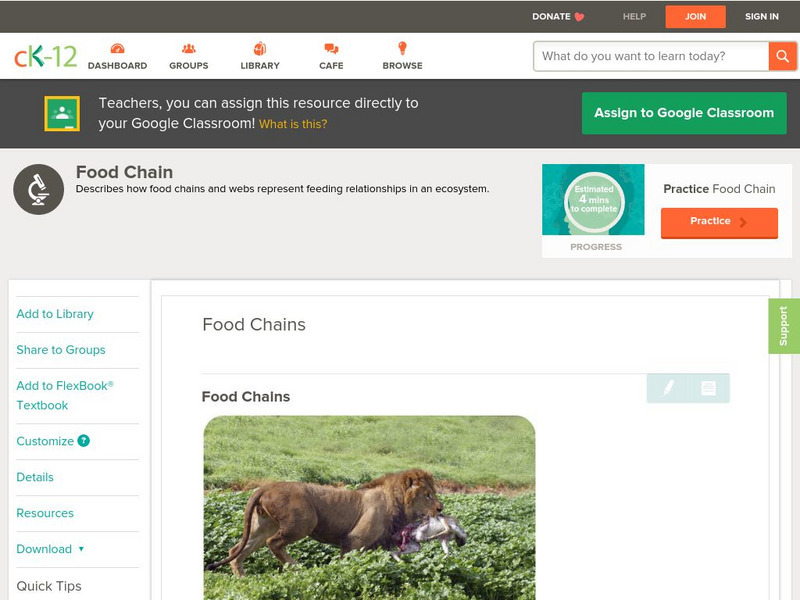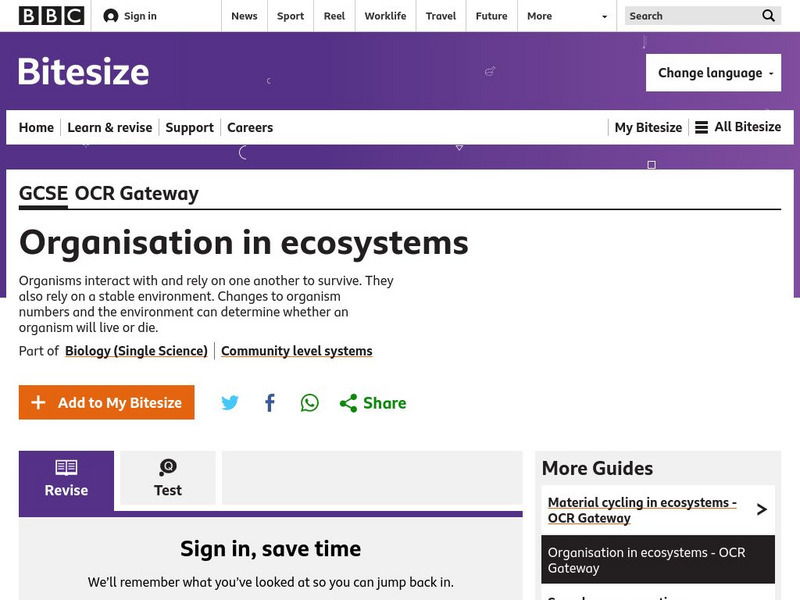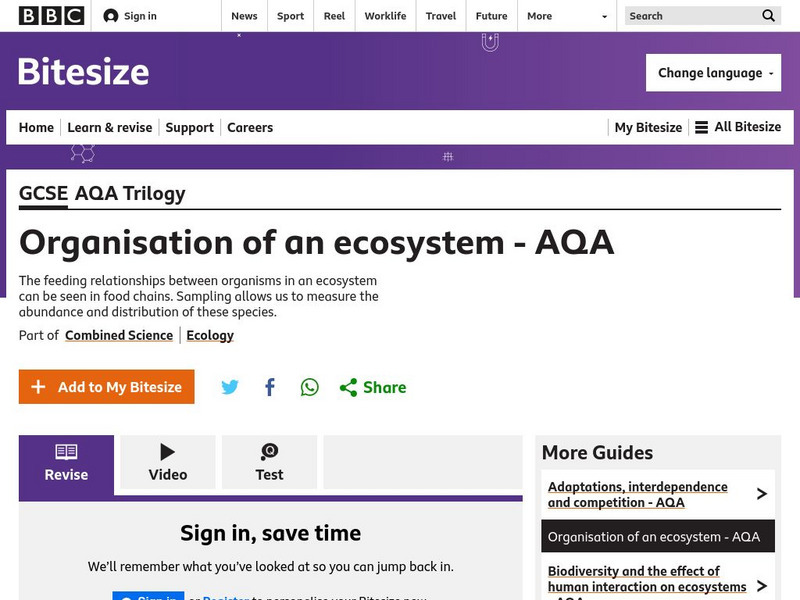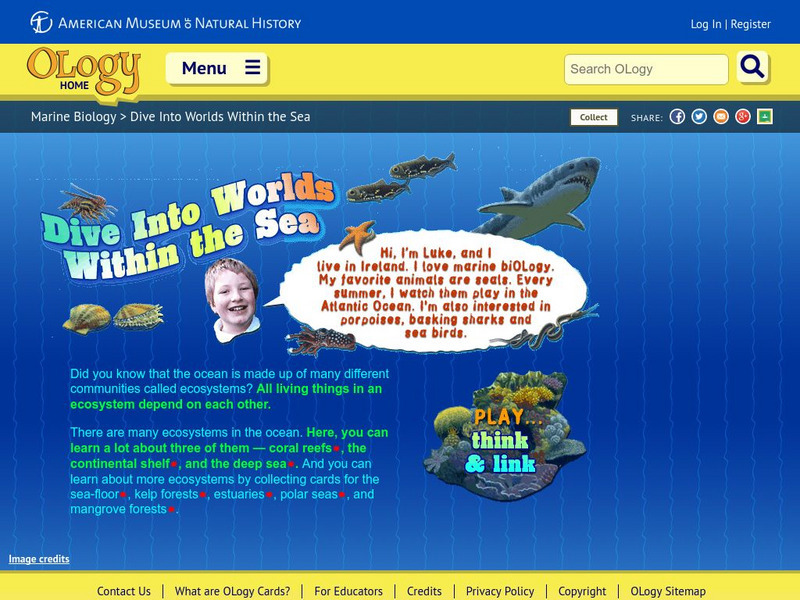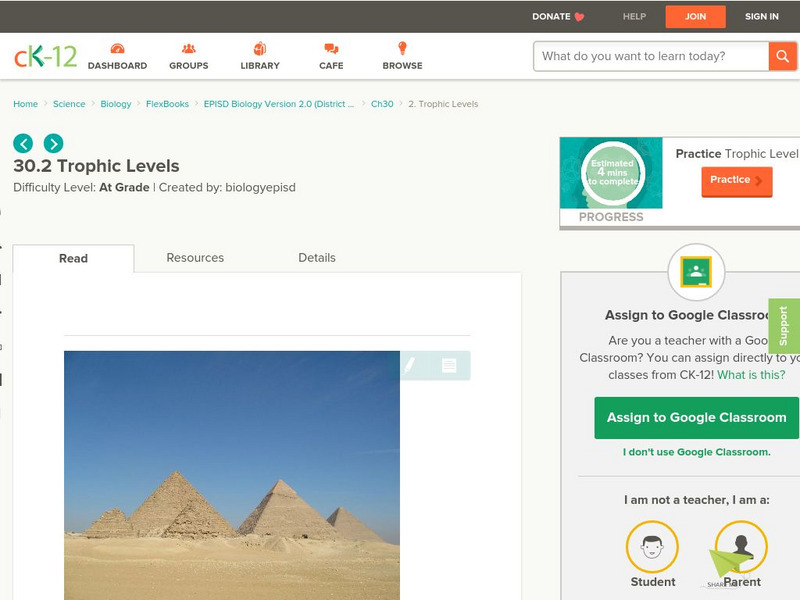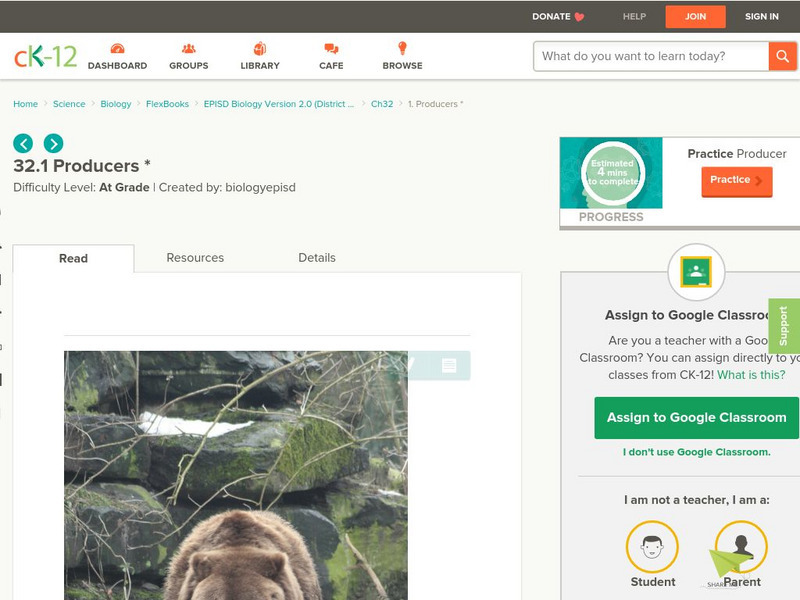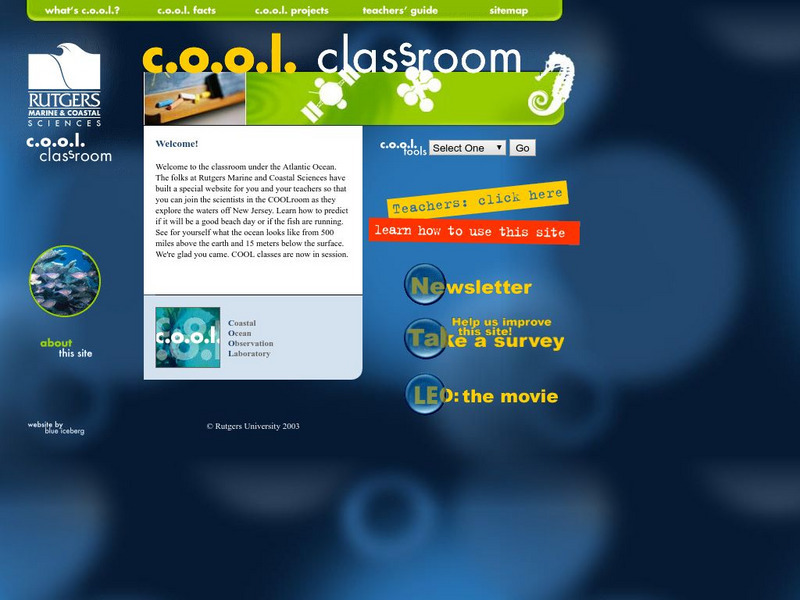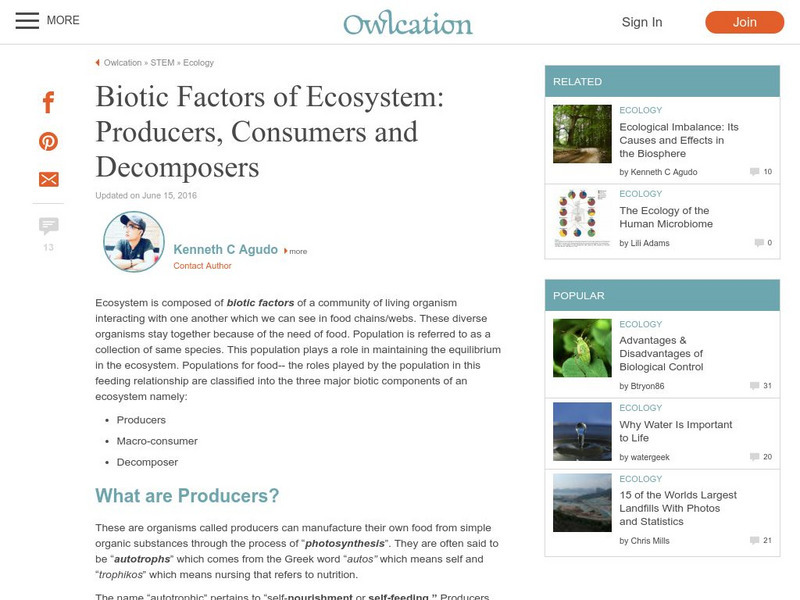ClassFlow
Class Flow: Food Chains
[Free Registration/Login Required] Through this flipchart students will be able to summarize and organize simple food chains.
CK-12 Foundation
Ck 12: Biology: Food Chains
[Free Registration/Login may be required to access all resource tools.] Describes how food chains represent feeding relationships.
Sophia Learning
Sophia: Producers and Consumers: Lesson 3
This lesson will review the difference between producers and consumers, and show how both play important roles in a food web. It is 3 of 4 in the series titled "Producers and Consumers."
Sophia Learning
Sophia: Producers and Consumers: Lesson 4
This lesson will review the difference between producers and consumers, and show how both play important roles in a food web. It is 4 of 4 in the series titled "Producers and Consumers."
Sophia Learning
Sophia: Producers and Consumers: Lesson 2
This lesson will review the difference between producers and consumers, and show how both play important roles in a food web. It is 2 of 4 in the series titled "Producers and Consumers."
Massachusetts Institute of Technology
Mit: Open Course Ware: Courses: Civil Environmental: Ecology I: The Earth System
College-level online course highlighting the fundamentals of ecology. Course topics include coevolution of the biosphere, geosphere, atmosphere, and hydrosphere; photosynthesis and respiration; and the carbon, nitrogen, and water cycles....
BBC
Bbc: Gcse Bitesize: Organization in Ecosystems
This lesson focuses on food chains in ecosystems, including levels of consumers, decomposers, and a list of common words used with food chains and their definitions. It also provides a link to an assessment.
BBC
Bbc: Gcse Bitesize: Organization of an Ecosystem Aqa
This lesson focuses on the organization of an ecosystem. The feeding relationships between organisms in an ecosystem can be seen in food chains. Sampling allows us to measure the abundance and distribution of these species. It provides...
Alabama Learning Exchange
Alex: Protect Our Planet Piece by Piece
In this lesson from "The Friends of Auntie Litter", (www.auntielitter.org), food webs and their significance will be explored. This lesson is one from the "Take Pride Statewide" series. *Lesson provided by Julie Danley and Pam Walston.
Utah STEM Foundation
Utah Stem Action Center: Great Salt Lake Ecosystem
This lesson plan provides an eight-day flow of educational activities in which students use the Great Salt Lake ecosystem to explore food webs and how changes in living and nonliving factors affect different populations.
National Institute of Educational Technologies and Teacher Training (Spain)
Ministerio De Educacion: La Dinamica De Los Ecosistemas
This unit shows how ecosystems change over time and how matter and energy, which are essential to its operation, are transformed and passed from one living thing to another forming, in some cases, authentic cycles. It contains 19...
American Museum of Natural History
American Museum of Natural History: Welcome to Dzanga Sangha
Connect the dots to investigate three different habitats either the forest, bai or river of the rain forest. By connecting the dots students make a food chain to see how organisms in each habitat depend on each other.
American Museum of Natural History
American Museum of Natural History: Dive Into Worlds Within the Sea
Think and Link to investigate three different ecosystem either the deep sea, coral reef or continental shelf. By connecting the dots students make a food chain to see how organisms in each habitat depend on each other.
CK-12 Foundation
Ck 12: Episd: Trophic Levels
[Free Registration/Login may be required to access all resource tools.] Understand what trophic levels are and identify producers and consumers in a food web.
OpenStax
Open Stax: Energy Flow Through Ecosystems
Understand how organisms acquire energy and how that energy is passed from one organism to another through food webs and their constituent food chains.
CK-12 Foundation
Ck 12: Episd: Producers
[Free Registration/Login may be required to access all resource tools.] Students will recognize and understand the role of producers in the food chain within different ecosystems.
Annenberg Foundation
Annenberg Learner: The Habitable Planet: Ecology Lab
Create the parameters of your own ecosystem by choosing which producers and consumers live there. Visualize how the food web operates and species populations change. This simulator mimics the food web within a typical ecosystem and gives...
Other
Digital Library for Earth System Education: Teaching Box: Seasonal Upwelling
A suite of lessons focusing on the process of upwelling. Inquiry-based exploration of seasonal upwelling includes marine food webs, food production in the ocean, wind-driven ocean currents, and seasonal changes in biotic and abiotic...
Other
Rutgers Marine & Coastal Sciences: Cool Classroom
Students and teachers can explore the work of marine scientists and observe the ocean from their computers. Learn about Rutgers Coastal Ocean Observation Laboratory, discover why oceanography is important, and see what life is like in...
Other
Segfl: Sebastian Swan: Pond Web
This interactive ebook "Pond Web" demonstrates a pond food chain. Students can click on the ? to find answers to questions posed in the text. Students are asked to retell the story using pictures provided at the end of the book.
Defenders of Wildlife
Kids' Planet: The Web of Life
The Web of Life is a story told by a common garden spider at this site from Kids' Planet. Learn about the food web, and the roles and relationships of every living creature.
Science Struck
Science Struck: Decomposers in the Ocean: Role and Examples
Describes five different types of decomposers that feed on decaying organic matter in the oceans and that are at the bottom of the ocean food chain.
Other
Hub Pages: Biotic Factors of Ecosystem: Producers, Consumers and Decomposers
An ecosystem is composed of biotic factors of a community of living organisms interacting with one another which we can see in food chains/webs. These diverse organisms stay together because of the need of food. Population is referred to...
PBS
Nh Pbs: Nature Works: Producers and Consumers
This concise site that provides an explanation of what producers are along with a short quiz to test your knowledge of producers and consumers.

